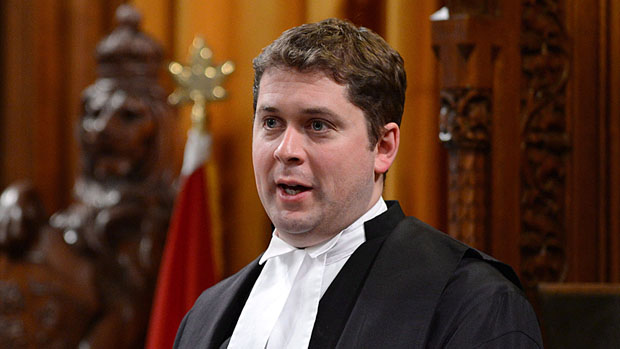
Speaker rejects Warawa and 11 Tory MPs call for freedom of speech
Speaker Andrew Scheer ruled on Conservative backbench MP Mark Warawa’s complaint finding that his parliamentary privilege had not been violated by Conservative muzzling and effectively left the door open for these 12 MPs to either revolt, leave the party, or vote for a Liberal motion on the topic tomorrow.
Scheer adds the complaint raises a point as statistics show other MPs haven’t gotten equivalent speaking opportunities.
Warawa responded via twitter stating, “I’m pleased with Speaker Scheer’s ruling that MPs have the right to seek the floor at any time.”
I’m pleased with Speaker Scheer’s ruling that MPs have the right to seek the floor at any time.
— Mark Warawa (@MPmarkwarawa) April 23, 2013
Warawa took issue to the idea of a party blocking one of its MPs right to speak because it didn’t follow the central communications strategy.
Yesterday, the Liberals reached out to Warawa telling him to wait with the ruling until the House had a chance to vote on their motion.
“I would urge you, and I believe it would be prudent for you, to wait a few more days, in the hope that this House is able to pronounce itself through a vote … which we believe would — in a common sense and very democratic way — resolve this issue,” said Liberal House leader Dominic LeBlanc.
The Liberal motion initially supposed to have been presented Monday was postponed to Wednesday make time to debate terrorism laws.
The bill would modify the order of speakers and how it is determined. Currently, each party’s whip determines the order of speakers they’ve allowed to make a statement and gives their list to the Speaker. Trudeau’s modification would enforce the speaker to order MPs by alphabetical order per party. MPs would be allowed to trade speaking spots to give them flexibility in case they cannot be present on the day the speaker finds it is their turn to speak. Independent MPs would be considered a group and placed in alphabetical order.
Warawa told CBC he is leaning towards supporting the motion, we will see if the 11 other backbenchers, who sent the speaker passionate letters supporting his cause, join him.
Backbenchers didn’t target their anger at the Prime Minister, but rather the whip, Gordon O’Connor – who takes orders from the Prime Minister. According to O’Connor, the whip’s job is to referee and the Speaker’s job is to enforce.
“While each party manages the process from a different perspective, the bottom line is that each party makes these decisions,” O’Connor said last month.
“The practice for many years in the House is for the Speaker to follow the guidance provided by the parties on which members to call on any given day.”
While the NDP claim to support freedom of speech and Warawa’s struggle, they say no systematic change is needed and attributes the problem to being inside the Conservative Party itself.
“We must all recognize that we have developed a problem in Parliament of excessive party control and we must move to fix the problem before it erodes our democracy any further,” said Bruce Hyer, an independent MP that had his parliamentary privileges taken from him by the NDP.
While the NDP and Conservatives refuse to address what appears to be a systematic issue, the Liberals will present a motion aimed at diluting much of the partisanship behind messaging that has escalated with the Harper government. We will see how MPs vote on the motion, and if the 12 rogue Conservative backbenchers support the motion that would give them their freedom – regardless what the PMO and whip says.
What do you think of the Speaker’s ruling? Do you support Trudeau’s motion to reform speaking rights? Is reform necessary?



